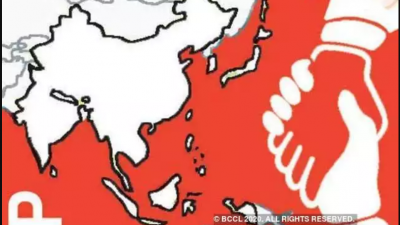Trade deals tend to continue for a long time and remain unfinished. The division of labor by Adam Smith and the theory of comparative advantage of trade between nations by Ricardo inspired the concept of global trade on the ruins of mercantilism.
In a major blow to the East Asia Summit, India opted out of RCEP. And once again, the East Asia Summit fell short of expectations.
"Neither the Talisman of Gandhiji nor my own conscience permits me to join RCEP," said Prime Minister Narendra Modi in Bangkok on 4th November, as India opted out of the free trade agreement negotiations that began seven years ago.
Many experts agree that India's decision to not join RCEP reduced the impact of RCEP significantly. Let’s find out why India chose to be the odd one out among the 16 countries and does it need to rethink its decision?
First of all, let’s find out what is this RCEP?
The Regional Comprehensive Economic Partnership (RCEP), is a proposed Free Trade Agreement (FTA) between the 10 ASEAN member states and six of their FTA members, comprising China, Japan, South Korea, Australia, New Zealand, and India, is expected to be one of the largest trading blocs in the world, contributing for 45% of the world's population, 40% of global trade, and around one-third of the world's GDP.
Now, most of the people who have done some basic courses of economics or have atleast some idea of how economics works on a macro level will say that free trade is good for everyone, which is mostly true. You don’t have to be an economist to figure out the importance of trade between countries. Just ask yourself, why do people exchange goods and services? The answer is pretty simple; it satisfies the needs of both the parties in an efficient way and benefits both. Well, similar reasons could be found for countries too.
Trade brings a number of valuable benefits to a country:
1. It helps a country to exploit its comparative advantage, it can now produce specific goods more effectively and efficiently and at the lowest opportunity cost.
2. The quality of goods and services is likely to increase as competition encourages innovation, design and the application of new technologies. Trade also encourages transfer of knowledge and technologies between countries.
3. Trade also breaks down monopolies, increases competition and lowers prices, which provides benefits to consumers by raising their purchasing power and increases the consumer surplus.
In fact, we all know the famous quote by Benjamin Franklin –
“No nation was ever ruined by trade.”
Then one would naturally ask that – If trade provides so many benefits then why did India shy away from RCEP, a trade agreement which was designed to break the trade barriers between its member countries?
Well, on the surface level RCEP looks like a win-win opportunity for everyone but to answer the above question we need to dig deeper. We need to look for what specifically India gains and loses from participating in the RCEP.
Please visit
this page to read the second part of the article.
***
Recommended Current Affairs topics for your MBA Interview Preparation!


